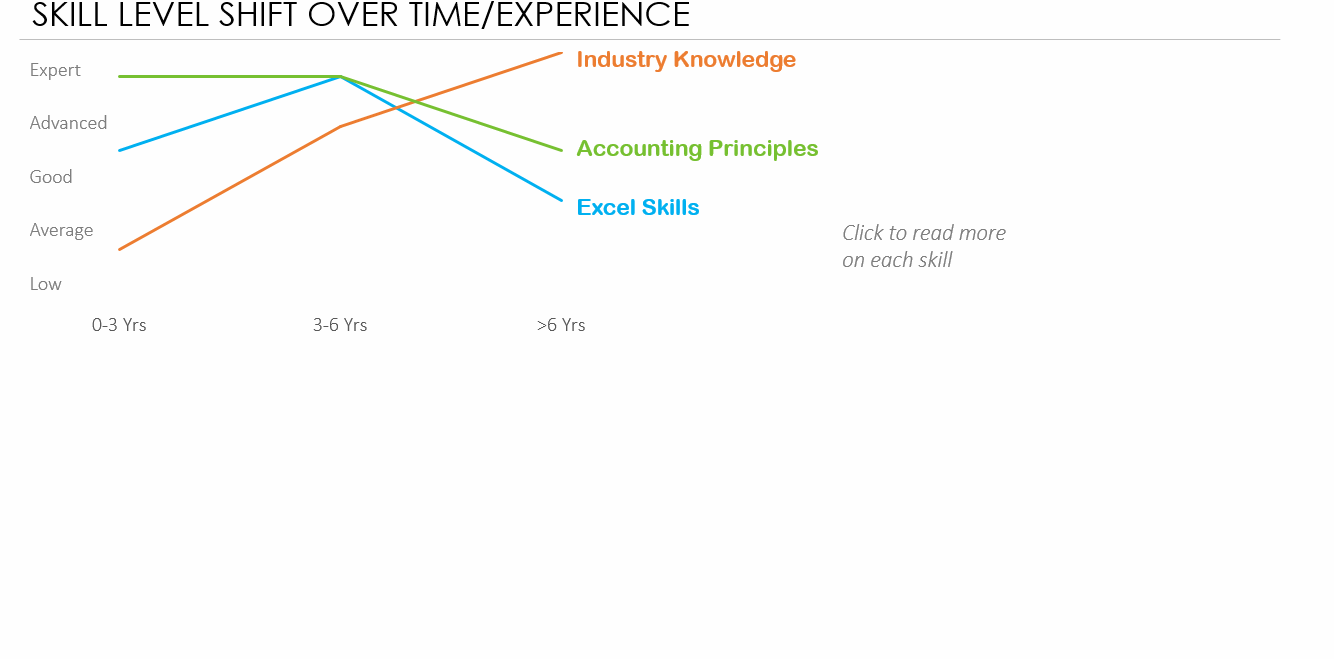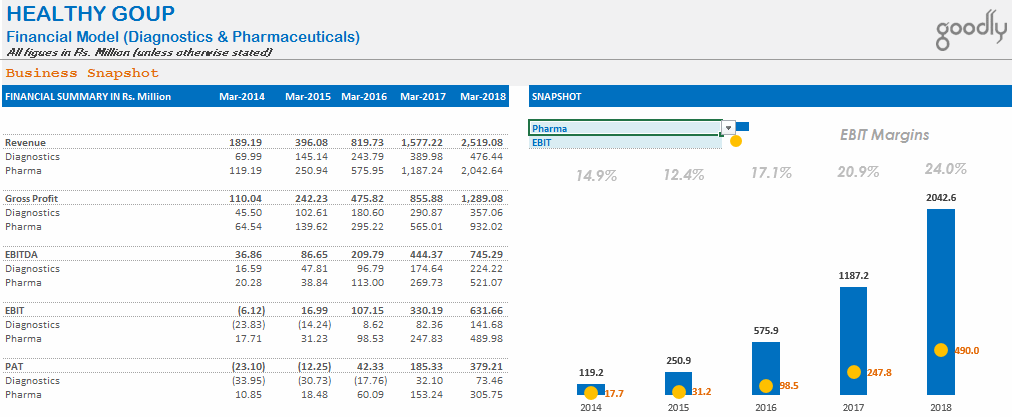So, you have been vying to learn Financial Modeling.. I’ll hand over a few tips from my experience. Before we get started.. let me simplify what a financial model is
So what is a Financial Model ?
If you read it on Wikipedia It says “Financial Modeling is the task of building an abstract representation (a model) of a real world financial situation”
I’ll say it simple – A Financial Model is an assumption of how the company/a project will perform financially in the future
So if it is that simple what is the hype all about. Well we’ll see that in a while.. as of now lets just sail through some of the more generic good to know stuff
Types of Financial Model
If I have to broadly classify financial models into crisp categories, I’ll say two
- Greenfield Model’s (That’s a Jargon) – If you have no past data available to analyse historic trends and you purely use your judgement to project the company’s/project’s financial future, you are most probably making a green field financial model. These models could be difficult to make, purely for their reliance on a strong judgement discretion. Couple of examples could be
- A model for a Start Up Company – where no historic data is available. For instance it could have been a real challenge back then to predict the number of tweets per day on twitter [Related: You might want to download a white paper on challenges in start up valuation – By Ashwath Damodaran)
- A project finance model – lets say a new toll road or power project where you have to make some assumptions about the future. The assumptions in these models are relatively easier to make because of the comparison you can make with similar projects in the history
- Check out Corality’s website for some free resources. They do a pretty good job at project finance specific training and consulting. I have personally seen their work 😀
- Read about Project Finance on Wiki
- Brown Field Model (That’s a Jargon too 😀 ) – When you have substantial financial history to rely on, that helps you project the future, you are working in the brown field modeling arena. Examples include
- Financial Projections for an ongoing Project/Company
- M&A Model – Where you know the historic numbers and you predict trends on how the acquisition may look like in the future
- LBO Model (Jargon)- Buy a company with Debt (borrowed money) and then pay off the debt using the company’s strong cash flows
- Other Financial Models – If you were to Google ‘types of financial models’ you would find results like LBO, DCF Modeling, Project Finance Modeling , M&A Modeling etc.. which is entirely different than my 2 crisp categories. I find these a glorified way of saying the same thing also these categories are mostly overlapping for instance you could be building the so called “DCF Model” for Project Financing.. Well these are all jargons, we’ll tackle them some other day, as of now lets just stay simple 🙂
Skills you should develop to be a pro at modelling
To be killer at financial modeling, I’ll suggest a simple heuristic i.e. PRACTICE. But just to give your practice a bit more direction I’ll suggest the following
1. Know thy Industry
Answer the following questions
- What are standard operating margins in the e-commerce industry?
- Would you believe me if I told you that a commoditised auto parts manufacturer is making 75% operating margins ?
- Did you know how and why Flipkart was valued nearly a 10,000 Crore company within 6 years of its launch? Wait… and that too when it was making losses ?
- What are the growth drivers for a school business ?
If you dont know the industry and its economics you cannot possibly make a sensible model. WHY? – because you cannot make good judgement about the company’s business projections, because you cannot reason out your judgements about what is good and bad for the business in a particular industry
Suggestions
2 simple ways to get to know your industry better
- Read often – Reading about companies, M&A activities, government policies, how the business works in any industry keeps you up to date. You can chew on following resources
- Dealcurry – A great resource hub for articles on Investments and M&A
- VCcircle – Again a great site on news runs on investments and capital markets
- Yourstory.in – A very good place to know how start ups are creating a disruption
- Damodaran’s blog – A superb place to read practical insights about companies on valuations and corporate finance
- Experience – This is a grey haired phenomena and comes only with age and work. They say.. somethings only reading can’t buy (more of my own saying). Deep insightful, experiential knowledge comes with experience, so just hang in there a bit longer for better realizations about your industry
2. Excel Proficiency
I am assuming that you have acquired all or (let’s say) most of the industry knowledge that is required. Translating that industry knowledge in the form of excel calculations is another skill that is critical. Developing state of the art excel skills can help you make complicated calculations (for capturing industry insights more closely) pass like a breeze. To give you an example
- The school business makes no or very little money in summer vacations. So how would you model this every year in Q1 (Indian Fiscal) where your model shows a significant dip in the revenue
- How will you automate your model so that any delays in the power project are taken care by itself and all the financial statements update automatically ?
- How many work arounds do you know if you got stuck with model circularity ?
Suggestions
- Break your head more often with Excel for learning more tips and tricks. I suggest you should
- Take part in World Financial Modeling Contest
- Visit websites like www.chandoo.org for excel tips and tricks
- Regularly follow Mike Girvin’s you tube channel Excel is Fun for getting advanced on making excel formulas
- Pristine has also done a pretty decent job at providing some free resources on financial modeling
- Goodly – I will soon be inviting some of my close industry friends (modeling geniuses) to talk more about this
- You must know Simon Benninga – He is a world renowned author of several financial modeling books
- Take a formal training – A close friend of mine (Ashutosh Zawar) runs a very effective online financial modeling program at Udemy. I recommend you to take a look
- Worth reiterating – PRACTICE, you cant do without it..
3. Know the Accounting Principles
Your skill tripod is not complete till the time you add the last armor of sound know how of accounting principles. If you are wondering why are they important, let me tell you why
- Let’s say the company has announced share repurchases, how will you show the accounting impact in your financial model ?
- Do you know how dual accounting works and impacts the financial statements ?
- How are deferred taxes calculated ?
The reason that also makes them important is that they force standard representations of financial statements, Just knowing the logic is not enough.. you have got to know the accounting entry too
Suggestions
- If you have not had accounting as a subject in school or college, you might want to start from picking up your class 11th accounting book catch up on the basics
- Be friends with a Chartered Accountant/CPA. They tend to understand accounting better than anyone else
How these Skills Level change over Time (or lets say experience)
 Download this file from down below explaining how skill level changes with experience
Download this file from down below explaining how skill level changes with experience
Caution about financial modeling
People take financial models too seriously. I believe that financial models are merely built to have “an estimate” about how a normalized future could look like. They are useless tools if you are trying to predict with high certainty. You may be a modeler or may have opposing views on this, but just think about this, If I were to create a financial model, with how much certainty will I be able to calculate the exact future by merely doing the complex math on a fancy spreadsheet. The answer is that the future is more dynamic that any complex excel calculation!
So stay humble and believe that your models are prone to forecasting errors (errors that you cannot predict)
Read more on this : Black swan & Nassim Taleb
Buy why is it still important
You must be willing to kill me now for contradicting my self, but I am not. I’ll say they are important because these models help you gain some estimate and get started with the project. Rest that counts is your experience in execution… nothing beyond!
Your Thoughts
- Do tell me how seriously do you take your financial models to be a robust measure of predicting future ?
- And what methods you suggest to improve ones financial modeling skills, I am sure I would have missed on some good ones ?
